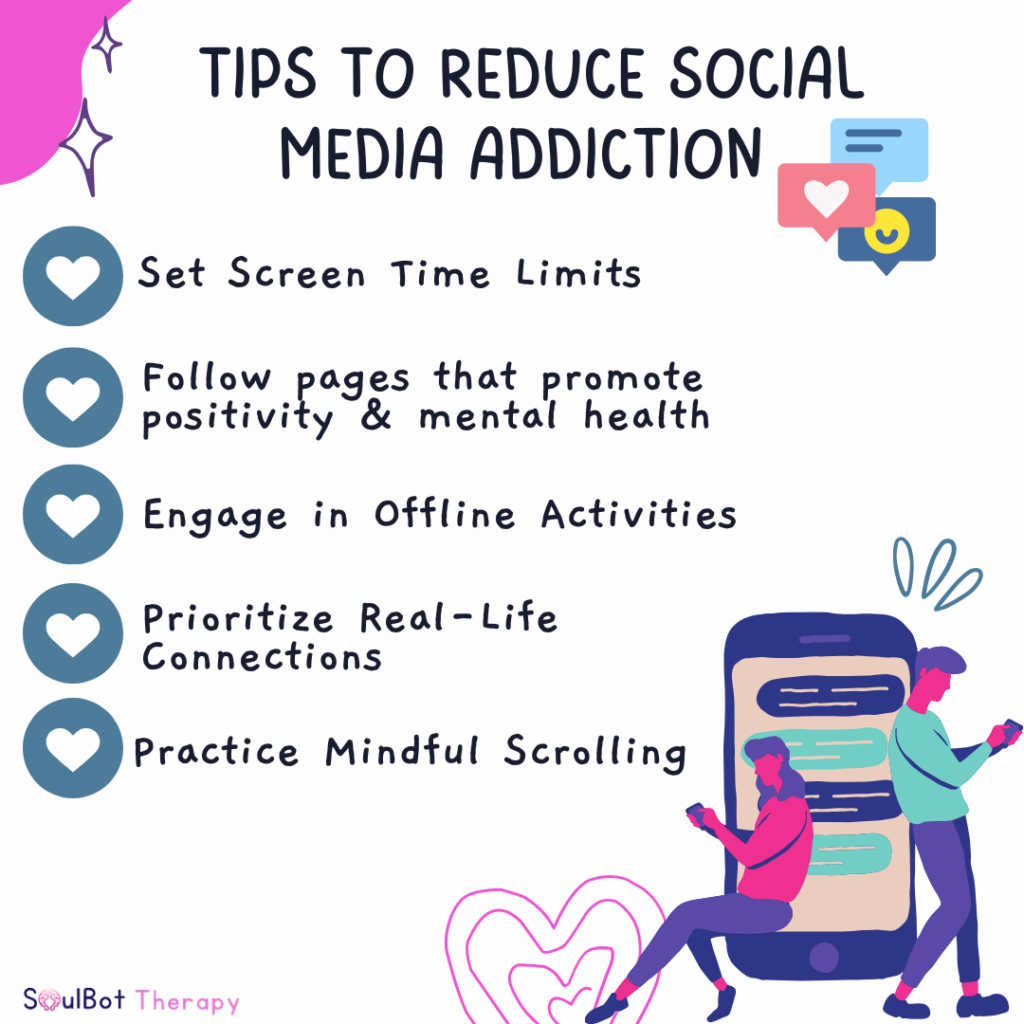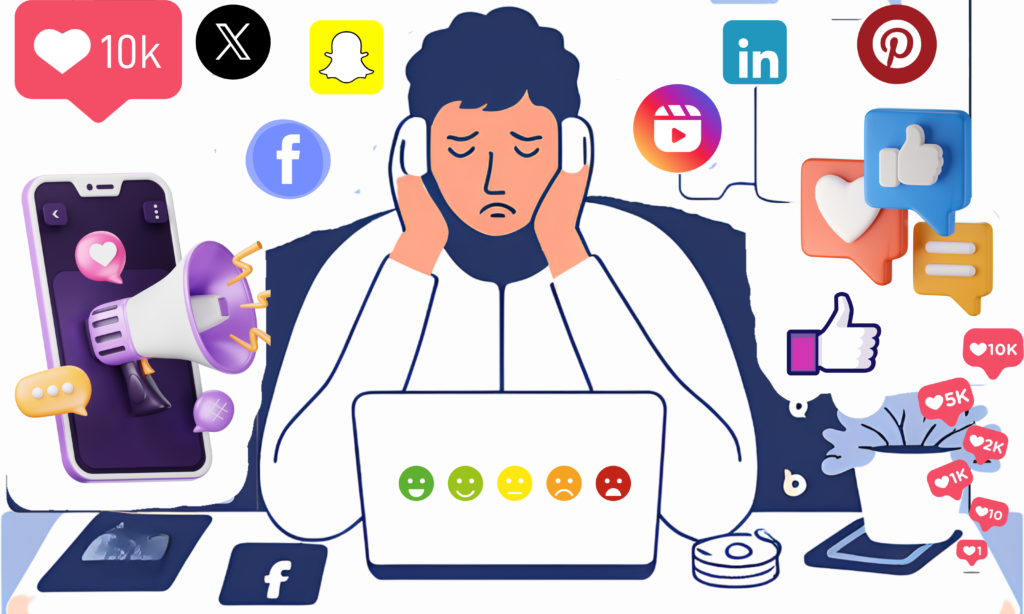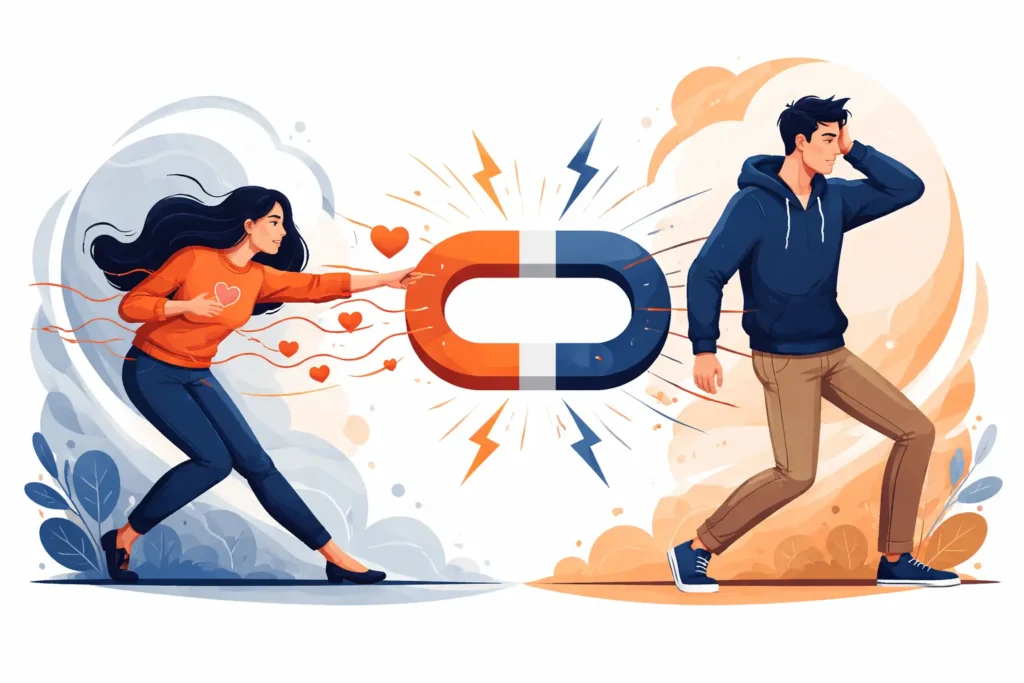Scrolling through social media can be entertaining, informative, and even comforting. But have you ever felt anxious, lonely, or inadequate after spending time online? In this blog, we’ll explore why social media cause depression and how to maintain a healthier digital balance.
Does social media cause depression?
Research suggests a connection between excessive social media use and declining mental health.
How Does Social Media Affect Mental Health?
Social media isn’t inherently bad, but it affects people differently based on how they use it. While some find connection and support, others experience increased stress, anxiety, and loneliness. How social media can cause depression is linked to several psychological and behavioral factors:
1. The Comparison Trap
Have you ever looked at someone’s “perfect” vacation photos or seemingly flawless life and felt like yours doesn’t measure up? Social media is a highlight reel, often showcasing filtered reality rather than the truth. This unrealistic portrayal fuels feelings of inadequacy and low self-esteem, contributing to depressive symptoms.
2. Fear of Missing Out (FOMO)
Seeing friends attending events or achieving milestones can trigger FOMO (Fear of Missing Out). This feeling of exclusion can cause stress, dissatisfaction, and a sense of not belonging. Studies have linked high FOMO levels to increased anxiety and depression.
3. Cyberbullying and Online Harassment
Unlike face-to-face interactions, social media exposes users to negative comments, bullying, and online criticism. Repeated exposure to harmful messages can severely impact self-worth and mental well-being.
4. Sleep Disruptions
Did you know that the blue light from screens suppresses melatonin production, making it harder to fall asleep? Late-night scrolling can lead to poor sleep quality, which is directly linked to an increased risk of depression and anxiety.
💡 Fact: According to a study by the National Institutes of Health (NIH), excessive social media use and depression are correlated with increased feelings of loneliness and depression.
Signs that Social Media Causes Depression & May Be Affecting Your Mental Health
Is social media negatively impacting your mental health?
Look out for these warning signs:
✔ You feel down, anxious, or restless after using social media
✔ Constantly compare yourself to others online
✔ Checking social media compulsively, even when it disrupts daily tasks
✔ Feeling isolated despite spending hours online
✔ Experiencing sleep issues due to late-night scrolling.
If these sound familiar, it might be time to rethink your social media habits.
Does Social Media Cause Depression and Anxiety?
Social media itself doesn’t directly cause depression, but excessive usage has been strongly linked to increased depressive symptoms. Over time, prolonged exposure can significantly impact mental well-being.
🔹 When online interactions replace real-life connections, feelings of loneliness may grow stronger.
🔹 At the same time, constant exposure to thoughtfully organized lifestyles can distort self-perception, leading to lower self-esteem.
🔹 Due to the overwhelming amount of information, unwinding becomes challenging, often increasing stress and anxiety.
🔹 Moreover, excessive scrolling can interfere with daily responsibilities, ultimately causing frustration and guilt.
💡Fact: A study published in JAMA Pediatrics found that teens who spent over three hours daily on social media had higher risks of experiencing symptoms of depression.

How to Protect Your Mental Health While Using Social Media
If you’re experiencing the negative effects of social media, here are practical strategies to create a healthier balance:
1. Set Screen Time Limits
Use built-in screen time tracking apps or set alarms to limit unnecessary scrolling. Take digital detox days when needed.
2. Curate Your Feed
Unfollow accounts that make you feel insecure. Instead, follow pages that promote positivity, mental health awareness, and self-growth.
3. Engage in Offline Activities
Replace social media time with exercise, reading, hobbies, or face-to-face interactions.
4. Practice Mindful Scrolling
Before logging in, ask yourself: “What am I looking for?” Be intentional with your time online rather than mindlessly scrolling.
5. Prioritize Real-Life Connections
Engage in meaningful conversations with friends and family. If social media is your primary way of socializing, try transitioning to in-person interactions or phone calls.
📌 Need help managing your social media habits? SoulBot offers personalized guidance to help you create a balanced digital lifestyle.
In a Nutshell
Social media isn’t going anywhere, but its impact on mental health depends on how we use it. While it can foster connection, it can also lead to stress, comparison, and loneliness. By setting boundaries, being mindful of consumption, and prioritizing real-world interactions, you can protect your mental well-being while still enjoying the benefits of social platforms.
If you’re struggling with social media’s effects on mental health, reach out for support. You don’t have to go through it alone.
📌 Want a healthier relationship with social media? Try SoulBot for mental wellness insights and support.








